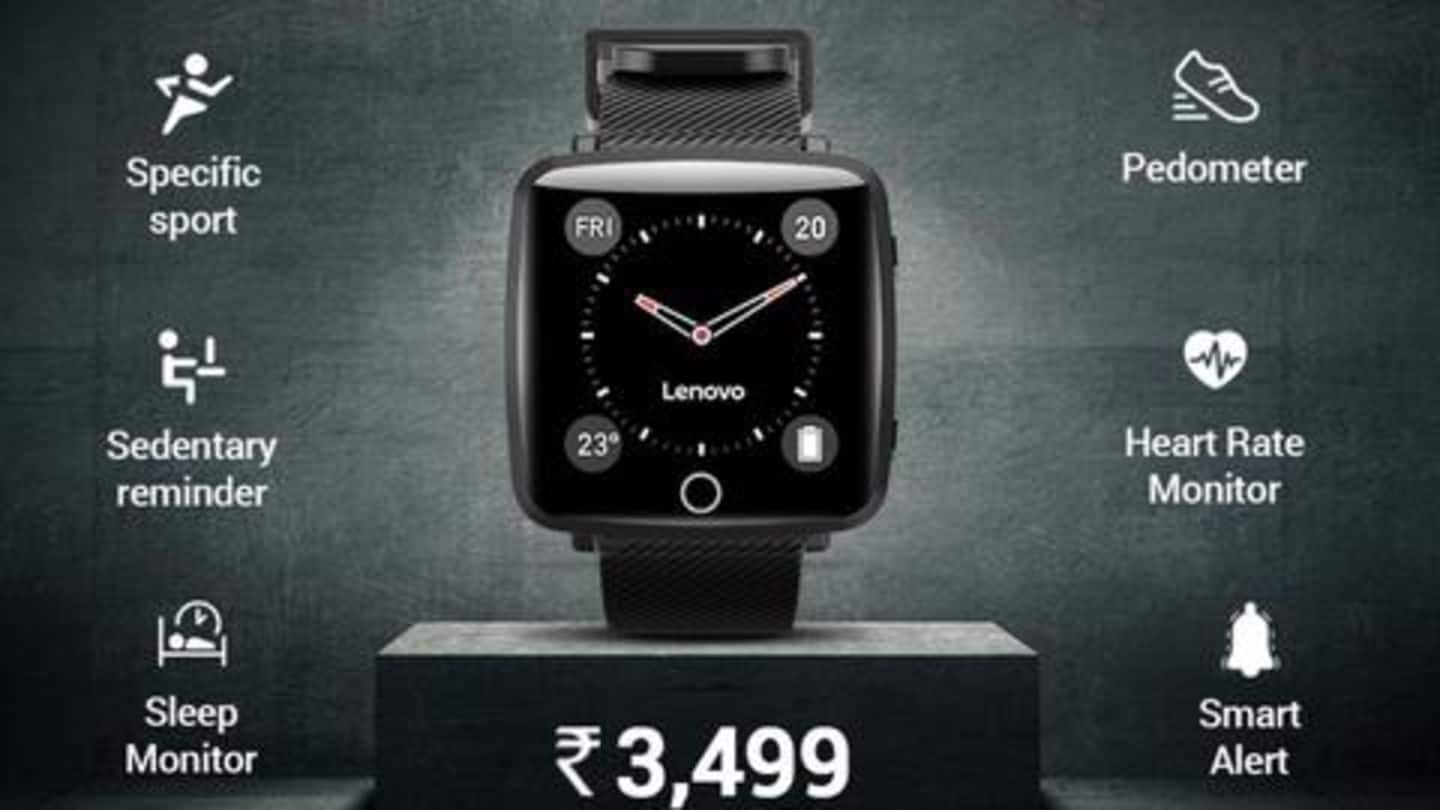
Lenovo launches Carme smartwatch at Rs. 3,499: Details here
What's the story
In a bid to expand its footprint in India's wearable market, Lenovo has launched a fancy new budget smartwatch called Carme.
The device comes at a price of Rs. 3,499 and offers an IPS color display with a bunch of health-focused capabilities, including speed tracking and heart rate monitoring.
Here's all you need to know about it.
Design
Lenovo Carme: Design and display
While you can't expect too much from a smartwatch priced under Rs. 4,000, Lenovo Carme makes for a pretty decent package.
The wearable boasts of a square-ish dial with a 2.5D curved surface design and 1.3-inch color IPS display that eliminates blind angles and delivers enough brightness to read content in broad daylight.
Plus, the watch also supports touch inputs and has IP68-rated waterproofing.
Features
Essential health and fitness tracking features
Along with an impressive build, Carme packs all those health-tracking features that come with a regular smart band.
This includes features like 24-hour heart rate monitoring, pedometer-based step tracking, as well as sleep tracking.
Notably, you can also choose between different modes for tracking calories burned during activities like badminton, basketball, cycling, football, running, swimming, and walking.
Added
And, it offers some smartwatch specific quirks
Lenovo Carme makes things more interesting with added smartwatch-specific quirks like the ability to choose different watch faces as well as notification syncing.
You can get notifications for emails, messages, calls, and can even set reminders, use a stopwatch, or get weather updates right on your wrist.
There's also a feature that would help you locate your phone in case you misplace it somewhere.
Availability
Two color options available on Flipkart
That said, you can grab the new Lenovo Carme at Rs. 3,499 on Flipkart.
The watch comes in two color options and works with both Android and iOS smartphones.
As for battery life, you can expect it to last up to seven days on a single charge, perhaps more if certain features - like sleep tracking or heart-rate monitoring - are not used regularly.